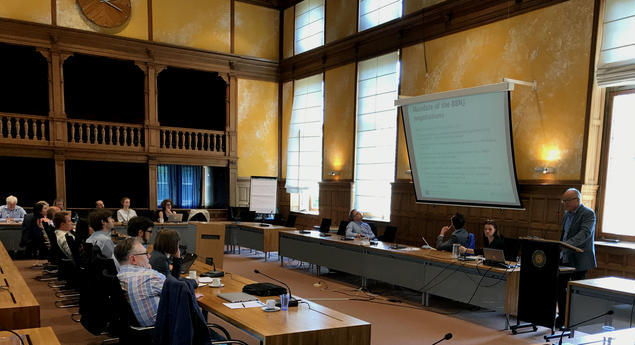Experts discussed management of international waters

How do we manage and preserve fisheries and biological diversity in the vast ocean areas outside national jurisidiction?
This was among the key questions adressed when FNI researchers this week attended a seminar at the Netherlands Institute for the Law of the Sea (NILOS) at Utrecht University.
The seminar was the annual internal meeting of the K.G. Jebsen Centre for the Law of the Sea (JCLOS). JCLOS is hosted by The Arctic University of Norway (UiT), with FNI as national consortium partner and NILOS as the most important foreign collaborating partner.
Follows UN negotiations
FNI researchers Øystein Jensen, Christian Prip and Davor Vidas, as well as FNI Director Geir Hønneland, all participated at this year's seminar. Among the topics discussed were legal challenges related to the management of fisheries and conservation of biodiversity in areas beyond national jurisdiction, for instance in the Central Arctic Ocean.

There are exciting developments in the law of the sea in areas beyond national jurisdiction, and FNI is following them closely,', says Geir Hønneland. 'Ocean governance and the law of the sea is one of the most traditional fields of study at FNI, and we are proud to be a constituent part of JCLOS, which is now the main arena for law of the sea research in Norway.'
The use of marine resources in areas beyond national jurisidiction was top-agenda also when FNI senior analyst Christian Prip together with colleagues from JCLOS gave input to the UN negotiation process on a possible new ocean treaty earlier this spring. FNI and JCLOS then co-hosted a side-event to the negotiations, on how the outcomes of the UN process might affect the ocean governance in the Arctic.
Read also: Towards new governance in the Arctic Ocean?
